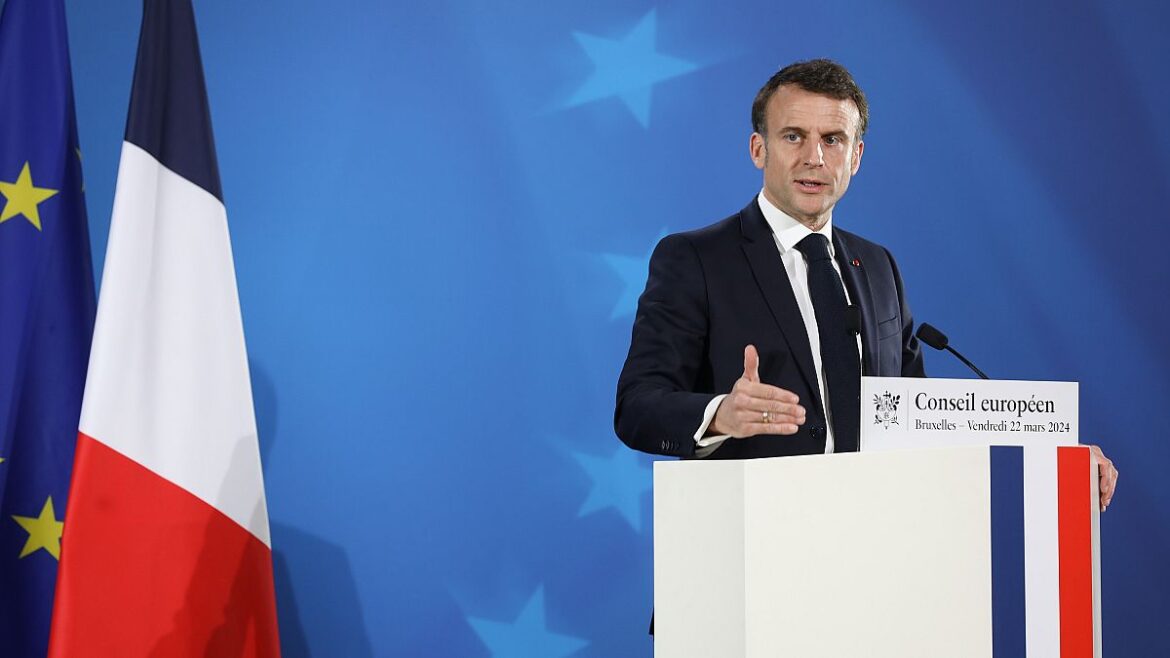The defeat of the presidential party in the European elections and the possibility of seeing the far right win the legislative elections weaken the voice of the French president.
The decision of the French president to dissolve the National Assembly causes a wave all the way to Brussels. This announcement opens the door to a period of uncertainty in the EU institutional process.
On the one hand, Emmanuel Macron emerges weakened from the defeat of his party in the European elections. On the other hand, the French leader could appear next month in front of his cohabitation partners if the far right wins in the early legislative elections, with the consequence of a weakening of his voice.
“We remember the speech at the Sorbonne in April where he was very ambitious. He called for ambitious actions for the European Union. It will perhaps be less in a position to impose this agenda on its European partners, less in a position to point out the direction to follow for the European Union.“, estimates Eric Maurice, analyst at the European Policy Centre.
Emmanuel Macron played the role of kingmaker in 2019. He had given Ursula von der Leyen’s name to the presidency of the European Commission, he had obtained the presidency of the European Central Bank for France and he had managed to offer an imposing portfolio to the French Commissioner. In the event of cohabitation, the president risks seeing this dynamic come to a halt.
“This could make things more difficult at the European level if, say, (Emmanuel) Macron has a say on the national stage, and Jordan Bardella as Prime Minister could hamper his enthusiasm at the European level“, judges Sophia Russack, analyst at the Center for European Policy Studies.
Negotiations will begin next week to distribute the various major positions of the Union, namely the presidency of the European Commission, the European Council and the head of EU diplomacy.
The economic and demographic weight of France and Germany makes the two capitals essential in the EU, but the political context is not favorable to the two leaders.
“The two leaders, supposedly the most important, Olaf Scholz and Emmanuel Macron, emerge weakened from these elections. This could therefore give a little more space to the leaders of other large countries, such as Poland, Italy and Spain.“, notes Sophia Russack.
The French legislative elections will take place on June 30 and July 7.



